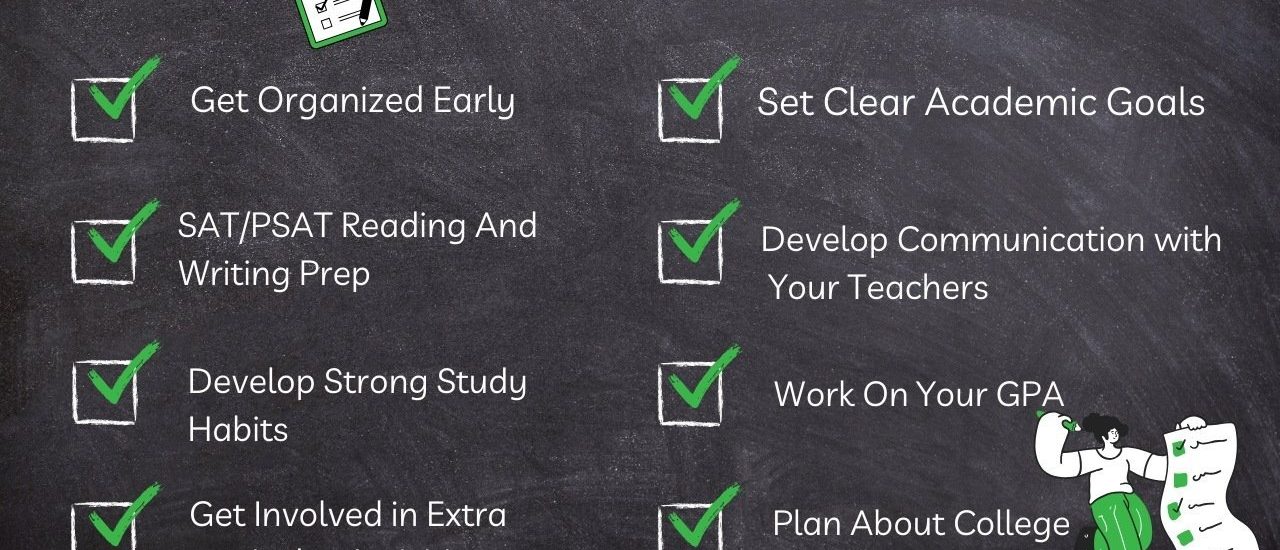Effective communication with teachers influences your study habits immensely. By understanding when and how you communicate with your teachers, you can enhance your learning experience significantly. Clear and timely communication fosters a positive teacher-student relationship, leading to better academic performance. Let’s delve into why when and how you communicate with your teachers is a study habit worth mastering.
When and How You Communicate with Your Teachers is a Study Habit
Communication plays a crucial role in our learning journey. As students, talking to our teachers not only helps us understand the subject matter better but also builds a stronger relationship with them. In this article, we will explore why when and how you communicate with your teachers is a study habit that can enhance your academic performance. Let’s dive in!
The Importance of Effective Communication with Teachers
Effective communication with your teachers is like having a secret weapon in your academic arsenal. When you talk to your teachers regularly, you create a supportive environment where you feel comfortable asking questions and seeking help when needed. Here’s why it’s essential:
1. Clarifying Doubts
One of the primary reasons to communicate with your teachers is to clarify any doubts you have about the lessons. If you don’t understand a concept or need further explanation, talking to your teacher can provide the clarity you need to excel in your studies.
2. Building a Support System
When you communicate with your teachers, you build a support system that extends beyond the classroom. Your teachers are there to guide you, offer advice, and help you navigate through challenging academic situations. Establishing this support system can boost your confidence and motivation to succeed.
3. Feedback for Improvement
Regular communication with your teachers allows you to receive feedback on your assignments, projects, and overall performance. Constructive feedback helps you identify areas for improvement and work towards enhancing your skills.
When to Communicate with Your Teachers
Knowing when to communicate with your teachers is just as important as how you communicate with them. Here are some key moments when reaching out to your teachers can benefit your learning process:
1. Before or After Class
Utilize the time before or after class to have quick conversations with your teachers. If you have a question about the lesson or need clarification on an assignment, don’t hesitate to approach your teacher during these times.
2. During Office Hours
Most teachers have designated office hours when they are available to meet with students individually. Take advantage of this time to discuss any academic concerns, seek guidance on projects, or simply have a chat about your progress.
3. Email Communication
Email is a convenient way to communicate with your teachers, especially for non-urgent matters. When sending an email, make sure to be polite, concise, and clear about the purpose of your message. Remember to check your email regularly for responses.
How to Communicate Effectively with Your Teachers
Now that we’ve covered when to communicate with your teachers, let’s delve into how to communicate effectively to make the most out of these interactions:
1. Be Respectful
When talking to your teachers, always maintain a respectful tone. Use polite language, listen attentively, and show appreciation for their time and guidance. Respectful communication fosters a positive relationship with your teachers.
2. Ask Thoughtful Questions
Engage with your teachers by asking thoughtful questions that demonstrate your interest in the subject. Avoid vague or yes/no questions and instead, inquire about specific concepts, example problems, or additional resources for further learning.
3. Active Listening
Active listening is a crucial aspect of effective communication. Pay attention to what your teachers are saying, ask for clarification if needed, and respond thoughtfully to show that you are actively engaged in the conversation.
4. Seek Feedback
Don’t hesitate to seek feedback from your teachers on your work. Whether it’s a homework assignment, a class presentation, or a project, feedback can help you understand your strengths and areas for improvement, ultimately aiding in your academic growth.
Developing a Habit of Communication with Your Teachers
Building a habit of communication with your teachers takes practice and consistency. Here are some tips to help you develop this essential study habit:
1. Set Communication Goals
Start by setting goals for your communication with teachers. Whether it’s asking at least one question per class or scheduling regular check-ins with your teachers, having specific goals can keep you on track.
2. Establish a Routine
Create a routine for when you will communicate with your teachers. It could be before or after class, during office hours, or through email. By incorporating regular communication into your daily or weekly routine, it becomes a natural part of your study habits.
3. Reflect and Adapt
After each communication interaction with your teachers, take some time to reflect on what went well and what you can improve. Use this feedback to adapt your communication approach and make adjustments for future interactions.
4. Express Gratitude
Show appreciation to your teachers for their time, support, and guidance. A simple thank you goes a long way in nurturing a positive relationship with your teachers and creating a conducive learning environment.
In conclusion, when and how you communicate with your teachers is not just a study habit but a valuable skill that can benefit your academic journey. By engaging in effective communication, seeking guidance, and building strong relationships with your teachers, you pave the way for a successful and fulfilling learning experience. Start incorporating regular communication with your teachers into your study routine, and watch how it positively impacts your academic growth and overall confidence. Remember, your teachers are there to help you succeed, so don’t hesitate to reach out and make the most of this valuable resource!
Qualities Of A Good Teacher | Qualities Of A Best Teacher | #shorts #teacher
Frequently Asked Questions
When is the best time to communicate with my teachers as part of my study habit?
It is best to communicate with your teachers regularly, especially when you have questions or need clarification on study materials. Don’t wait until the last minute to reach out for help. Set a schedule to check in with your teachers after class, during their office hours, or via email to stay on top of your studies.
How can I effectively communicate with my teachers to enhance my study habit?
To effectively communicate with your teachers, be specific about your questions or concerns. Prepare your questions in advance to make the most of your time with them. Listen actively to their responses and take notes for future reference. Additionally, be respectful of their time and establish open and professional communication channels.
What are some suitable methods of communication to interact with teachers for better study habits?
There are various methods of communication you can utilize to interact with your teachers, such as in-person discussions, virtual meetings, emails, or messaging through online platforms. Choose a method that both you and your teacher are comfortable with to ensure effective communication. Be clear and concise in your messages to facilitate better understanding.
Final Thoughts
When and how you communicate with your teachers is a study habit. Building a strong relationship with your teachers enhances your learning experience. Regularly seeking clarification and feedback shows your commitment to academic success. Effective communication fosters a supportive environment for your educational journey. Prioritize open dialogue with your teachers to maximize your learning potential.






